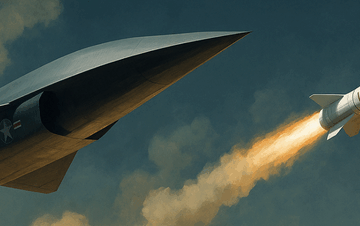Although Congress has adjourned for the holidays, when it returns, its first order of business should be passage of a resolution to provide Ukraine the support it needs to win. Fears that Ukraine is turning into a “forever war” in which the Biden administration has no clear strategy should not delay congressional action on this vital issue. Obviously, these are related issues. Indeed, the answer to the first question contains the answer to the second one.
The belief that the United States is being dragged into a forever war is ill informed. In fact, giving Ukraine what it needs to win might very well drag Russia, not the US and its allies, into a forever war that Russia eventually loses. Much as Soviet support for North Vietnam allowed Hanoi to perpetuate the war in South Vietnam against the United States while it reaped the benefits of a relatively modest investment, American support, combined with large-scale European support for Ukraine, will strengthen Kyiv’s capabilities and morale and allow it to outperform Russia in regard to adaptation and innovation in this war as it has consistently done.
Maintaining a consistent supply of weaponry and economic support also reinforces Western unity and drives European and American efforts. Despite some stumbles, Ukraine is fighting the West’s war and Ukraine is merely the most kinetic front in Russia’s long-running global war against the West. Providing Ukraine the necessary support reestablishes a deterrent capability that the United States is in danger of losing.
Investment in international security is essential to its maintenance. Although Putin is putting out feelers for a settlement where he can retain his ill-gotten gains from aggression, such a settlement would not constitute peace. A peace of this kind would demoralize Ukraine and strengthen Putin at home. Putin will spin such a Russian victory as ample evidence of the decadence and lack of fortitude of the West and accelerate the cascade of global crises now confronting the United States.
Russia will undoubtedly continue and upgrade its multi-dimensional probes and pressures against an equally demoralized North Atlantic Treaty Organization (NATO), while Chinese pressure tactics against Southeast Asian states and Taiwan will also intensify. And one can certainly say the same for Iran’s threats to Israel and international shipping, as well as further undermining the nonproliferation goals of the Nuclear Non-Proliferation Treaty (NPT). Indeed all these attacks on the West, including Venezuela’s threats to Guyana, are probably connected to the perception of Western drift and also possible covert support from Russia.
Therefore, supporting Ukraine and Israel allows them to continue fighting on behalf of Western and American interests and reinvigorate the deterrence that is under attack globally. Concurrently, for a fraction of the American defense budget, Ukraine has already destroyed over half of Russia’s conventional forces and is killing 40 percent of Russian recruits per month–more Russians than Moscow can replace.
Western support has a proven record of success. The Biden administration has openly stated that Ukraine should win by expelling Russian forces from Ukraine—and restore the integrity, sovereignty, and right to choose alliances. Strong and continuing support can bring about those conditions of victory. A victorious Ukraine will then have a strong claim to NATO membership that will deter Russia. The US and NATO can then further strengthen the respect adversaries have for Article V of the Washington Treaty and allow Western governments to reorient much of current spending on Ukraine to its economic reconstruction.
In other words, continuing support for Ukraine, coupled with rising Western pressure on Russia’s military, economy, and morale, can lead to victory. That outcome rules out a forever war for the United States but imposes that choice on Russia, thereby adding to the considerable strains already discernible. Indeed, in Russian history, every protracted war has imposed enormous strain upon the economy and the state. Defeat led to major reforms, if not the toppling of the regime. It is unlikely Putin can escape this history because it has repeatedly manifested itself over the past five hundred years.
Putin’s aggression gives the West a once-in-a-generation opportunity to decisively advance European and international security. The global reverberation of a Russian defeat strengthens the cause of democracy, deterrence, and the rules of an international law-based order. On the other hand, a Western defeat originating in the refusal to support Ukraine or similarly threatened states will encourage more wars around the world, greater costs than we bare now and certainly more loss of life. For these reasons, the United States must rise to its responsibilities and protect its interests. This means imposing the prospects of “forever war” on Russia, and thus seizing the opportunity to end Russia’s aggression and re-establish deterrence.
Stephen Blank, PhD, is a Senior Fellow at the National Institute for Deterrence Studies and the Foreign Policy Research Institute. Peter Huessy is a Senior Fellow at the National Institute for Deterrence Studies.






